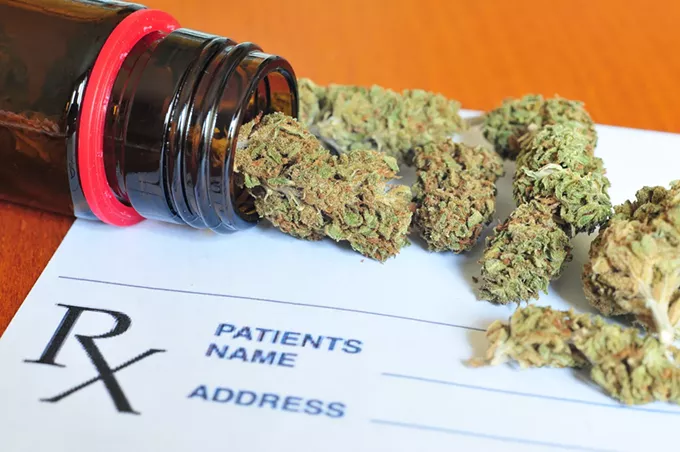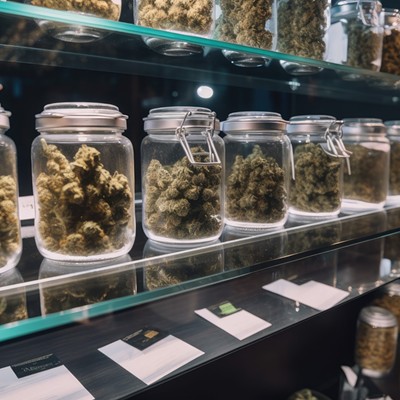Continuing his interest in the cannabis industry, Sen. Sonny Borrelli (R) introduced four bills with suggested changes to cannabis laws.
SB1016 would treat cannabis grown by dispensaries as an agricultural commodity in terms of taxes. While that might make sense, it would increase the tax rate on cannabis by 5.6 percent, and (spoiler alert) consumers bear the tax burden.
AZ NORML, a statewide cannabis advocacy organization, opposes this bill not only on the grounds of the tax increase, but because it tarnishes the "medicinal reputation of cannabis," said Mikel Weisser, executive director of AZ NORML.
States that have legalized adult-use cannabis—as the Safe and Smart Act hopes to do later this year—have seen their medical programs suffer as a result of new focus on a wider market, Weisser said.
Because Arizona could legalize cannabis in the next year, maintaining the medical system may prove a challenge if the state already begins treating it like any other agricultural product.
Weisser also noted the irony of a Republican legislator introducing new taxes the same week Gov. Doug Ducey announced "no new taxes" in his State of the State address.
Borrelli's SB1010 would allow surprise inspection of dispensaries. This follows other industries, such as restaurants, which have surprise inspection of business that sell products for consumption.
But the cannabis industry has experienced headaches around inspections before, mainly concerning inconsistencies on behalf of the Arizona Department of Health Services. Tossing surprise inspections into the mix likely does little to alleviate the situation.
A more popular bill may be Borrelli's SB1015, which would use the federal list of banned pesticides to regulate which pesticides may be used in Arizona. There's little reason for Republicans to oppose this bill since regulation is the only part of the industry they can get behind.
Borrelli's final bill, SB1017 would simply extend the date for dispensaries to report sales to the Arizona Department of Revenue. The bill ensures that any patient data will stay safely housed with the AZDHS.
Elsewhere in the Arizona Senate, Sen. Martin Quezada (D) introduced SB1063 to regulate the advertising of vape products, which includes "non-nicotine products." Weisser questions whether lumping in cannabis with nicotine products really makes sense in this case.
Finally, Sen. Tyler Pace (R) seeks to simplify Arizona's rambling drug statutes, which include more than 200 classifications of drugs. Pace's SB1095 would define cannabis as "marijuana," but last year's concentrate case cleared up the commotion concerning conflation.
All the bills the in the Senate have been assign to committee while none of the seven remaining bills in the house have achieved the same treatment.
Rep. Randy Friese (D) introduced HB2657 to move regulation of the adult-use market under the state liquor control board before even legalizing the plant. The bill would allow the retail sale of cannabis through liquor stores—if it were legal, that is.
Friese's bill is also packed with changes to crime penalties and expunging the records of past convictions, making it seem like another take on his omnibus cannabis bill last year.
Given the popularity of the Safe and Smart Act, and the slim chance of the industry relinquishing adult-use cannabis sales to liquor stores, Friese's bill is ultimately unlikely to make much of an impact on Arizona cannabis laws.
Additionally, many cannabis convictions are "incidental," meaning they happen in conjunction with other crimes, making expungements all the more complicated. While not impossible, it means funds would have to be appropriated to handle the program.
Blanc's bill would use money from the public safety interoperability fund administered by the Legislature, which currently affords communication infrastructure between first responders.
Rep. John Kavanagh (R) introduced HB2173 to expand Arizona's Smoke Free Act to include vape products, meaning it'd be illegal to smoke both nicotine and cannabis vapes indoors. This is another bill that lumps cannabis in with nicotine products but has little cause for opposition.
HB2049 from Rep. Diego Espinoza (D) would expand the state's list of qualifying conditions to include opioid use disorder and autism spectrum disorder. Currently the only non-physical qualifying conditions under Arizona law that allow for cannabis treatment are PTSD and epilepsy.
Rep. Ben Toma (R) wants to make it easier for people convicted of prior drug charges, including cannabis, to receive licenses in Arizona with HB2359.
Toma has been engaged in criminal justice reform since last year, but it might be difficult to get other Republicans on board with this particular idea.
Rep. Walter Blackman (R) introduced HB2638 to include deflection programs of cannabis crimes, allowing officers to avoid arresting individuals for minor offenses. The idea comes out of a criminal justice reform subcommittee headed by Blackman.
Last and certainly least is Rep. Amish Shah's (D) bill to allow judges the choice of delivering the $750 fine to individuals convicted of a Class 6 felony due to cannabis possession with intent to distribute.
We appreciate the gesture, but $750 is likely the last thing on someone's mind when they're heading to prison. Baby steps, right?










